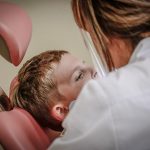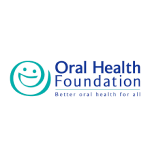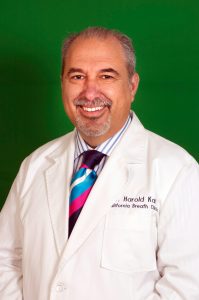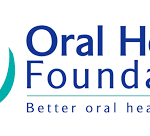Leaders of the Erosive Tooth Wear Foundation, Faculty of General Dental Practice (UK), British Society of Dental Hygienists and Therapists, Dental Protection Society, and King’s College London have announced the launch of a joint campaign in partnership with GSK, the makers of Pronamel, to drive awareness of erosive tooth wear (ETW).
Despite being the third most commonly observed oral condition, affecting up to 30% of European adults, and not requiring a drill to fix, UK research shows that ETW is currently not routinely screened or monitored as part of the standard dental examination.
These leading experts are calling on the dental profession to use the basic erosive wear examination (BEWE) alongside the basic periodontal examination (BPE) as part of every oral assessment to prompt early identification and prevention. As it follows the same sextant approach as the BPE, BEWE can be conducted at the same time, therefore requiring little additional clinical time.
Although the condition may have a slow rate of progression, the impact on aesthetics and function, as well as the financial implication of restoration, can be significant. According to a study by O’Toole et al., costs could be up to £31,000 for private treatment and the average treatment took 21 months.
Reports show that the rise in snacking culture and the popularity of fresh fruit and fruit juices has significantly increased the risk of developing ETW, especially when they are consumed outside of meals. Odds ratios for example increase nearly 12-fold when acidic drinks are consumed on two occasions outside of meals, highlighting how modern diets and lifestyles have a substantial role to play.
Dr Soha Dattani, Director of Scientific Affairs at GSK, commented: “Our modern snacking culture, coupled with an ageing population who retain their teeth for longer, means that ETW is a rapidly increasing risk. As ETW may have considerable aesthetic, functional and financial implications, there is a need to protect the patient and the professional through early identification and patient counselling for prevention.
“To tackle the issue head on, we’ve gathered the UK’s leading dental bodies to jointly highlight the effects of ETW and the need to change the way we as a profession approach it. As a healthcare company committed to helping patients to do more and live better, GSK is proud to support and be involved with this important initiative and to lead the way on tackling ETW for current and future patients.”
Reiterating just how common ETW is, Professor David Bartlett, Head of Prosthodontics and Graduate Training at King’s College London’s Faculty of Dentistry, Oral and Craniofacial Sciences, added that its prevalence is increasing. “The BEWE was designed specifically for use in general practice, it is a simple tool, which can be used alongside the BPE, to help screen for signs of the condition and prompt preventative discussions with patient,” he explained.
“The BEWE is a quick, simple and effective way to assess tooth wear and could undoubtedly benefit both patients and practitioners,” noted Ian Mills, Dean of the Faculty of General Dental Practice (UK). “Our profession is committed to delivering excellence in patient care. Modern lifestyles and eating habits present a range of challenges including the potential rise in ETW. Just as we do with caries and gum disease, we need to ensure that ETW is routinely monitored and patients are informed.”
Nairn Wilson, Emeritus Professor of Dentistry, King’s College London and Chair, Board of the College of General Dentistry, explained how it is important that all practitioners are up to date on the condition and are assessing patients for signs and risk factors. “For more established practitioners this may mean a need to change well-established examination routines and update knowledge to prevent any future risk of claims of supervised neglect.”
Dr Saoirse O’Toole, Clinical Lecturer in Prosthodontics at King’s College London’s Faculty of Dentistry, Oral and Craniofacial Sciences, meanwhile highlighted how Patients are often referred to the hospital for treatment “It is because early signs may not have been identified and changes to behaviour have not been discussed with patients. Simple advice, such as limiting the number of acidic drinks you have and switching when you have them to mealtimes may make a real difference in reducing patient risk.”
Diane Rochford, President Elect of the British Society of Dental Hygienists and Therapists, agreed: “As a profession, dental hygienists and dental therapists are traditionally identifying patients with adequate plaque control as an indicator of optimal oral health. We need to raise awareness that this is an exception, ETW generally occurs in patients who maintain optimal plaque control on a daily basis. Routine use of the BEWE alongside the BPE can efficiently and effectively identify patients at risk.”
“It is important to record signs of tooth wear as part of the hard tissues examination and to monitor the rate of progression,” argued Dr Raj Rattan, Dental Director at Dental Protection. “From a dento-legal point of view, the records should also indicate the preventative advice offered and the patient’s compliance with that advice. The value of comprehensive clinical records in defending dental claims cannot be overstated.’
ETW becomes even more critical as many of us retain our natural teeth later in life, according to Nigel Pitts, Professor of Dental Health and Academic Lead for Impact at King’s College London’s Faculty of Dentistry, Oral & Craniofacial Sciences. ““With more people retaining their natural teeth later in life it is critical that prevention and control of potentially destructive conditions such as ETW is prioritised.”
Comprehensive educational resources for both the clinician and patient to support this campaign are available via the Erosive Tooth Wear Foundation website https://www.erosivetoothwear.com and www.gskhealthpartner.com.








 Dentist, bacteriologist, and founder of The Californian Breath Clinics and The Breath Company, Dr Harold Katz, answers questions about how stress can impact your oral health.
Dentist, bacteriologist, and founder of The Californian Breath Clinics and The Breath Company, Dr Harold Katz, answers questions about how stress can impact your oral health.



 The work is part of a global outreach programme, which sees Dr Sharma working collaboratively with a group dubbed the Dental Mavericks. A follow-up for all those treated is scheduled to take place in around six months’ time.
The work is part of a global outreach programme, which sees Dr Sharma working collaboratively with a group dubbed the Dental Mavericks. A follow-up for all those treated is scheduled to take place in around six months’ time.




